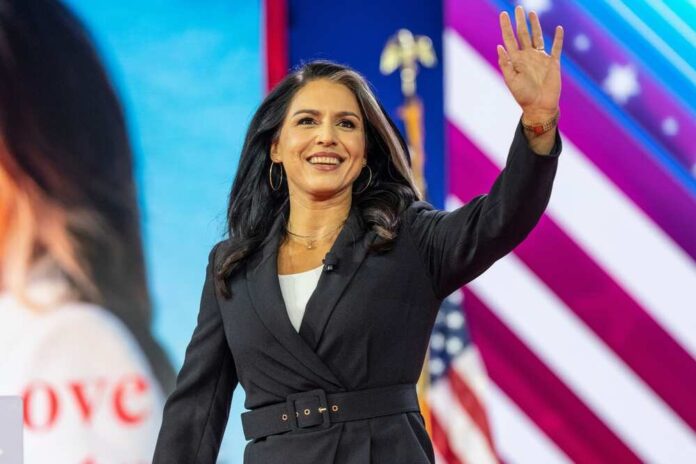
A Shift in Trump’s Intelligence Strategy In a surprising move, President-elect Donald Trump has nominated Tulsi Gabbard, a former Democratic Representative from Hawaii, as the Director of National Intelligence. This appointment marks a significant shift in Trump’s intelligence strategy and underscores his commitment to reforming the intelligence community. Gabbard, who served four terms in Congress, has undergone a remarkable political transformation.
Once a Democratic presidential candidate in 2020, she left the party in October 2022, citing its “warmongering” and “woke” positions. She subsequently endorsed Trump and joined the Republican Party, demonstrating her alignment with his values and vision for the country. Trump’s decision to nominate Gabbard reflects his emphasis on loyalty and his desire to combat what he perceives as the “Deep State.”
In announcing her nomination, Trump praised Gabbard’s commitment to constitutional rights and her “peace through strength” approach. He stated, “I know Tulsi will bring the fearless spirit that has defined her illustrious career to our Intelligence Community, championing our Constitutional Rights and securing Peace through Strength.”
Gabbard’s military background as an Army Lieutenant Colonel and her experience in the House of Representatives make her a unique candidate for this crucial position.
If confirmed, she would oversee all 18 of the nation’s intelligence agencies, playing a pivotal role in shaping America’s intelligence operations and national security strategy. In response to her nomination, Gabbard expressed gratitude and emphasized her support for Trump’s objectives.
She stated, “We had a great conversation and talked a little bit about the work that needs to be done and I was grateful and honored to accept President Trump’s offer to serve our country and support his objective to defend the safety, security and freedom of the American people as the Director of National Intelligence.”
Trump nominates Tulsi Gabbard to be Director of National Intelligence https://t.co/ODe9O8N0i7
— WPTV (@WPTV) November 13, 2024
Gabbard’s nomination has sparked both support and criticism. Supporters view her as a breath of fresh air in the intelligence community, while critics question her qualifications and sudden party switch. The nomination process is expected to face scrutiny in the Senate, where Gabbard’s non-interventionist foreign policy stance and criticism of past administrations may be closely examined.
As the country awaits the confirmation hearings, it’s clear that Gabbard’s potential appointment represents a significant departure from traditional intelligence leadership. Her nomination underscores Trump’s commitment to reshaping the intelligence community and signals a new direction in how the United States approaches national security and intelligence gathering.














